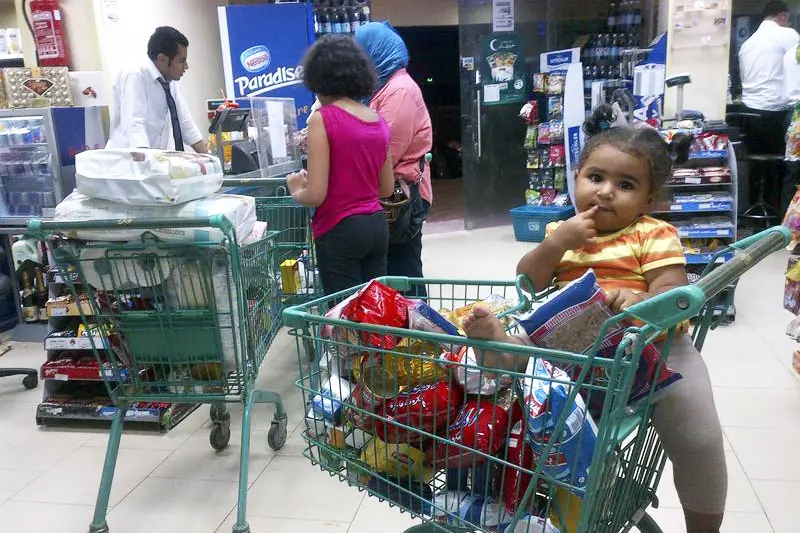PHOTO
EGYPT's annual inflation increased to 10.3 per cent in April compared to nine per cent in the three first months of this year, marking an easing in the inflation rate as the impact of March's devaluation of the pound starts to feed through into the wider economy.
"This was its highest rate this year and provides the first hard evidence that price pressures are building following the devaluation of the pound in March," said Capital Economics in a note released on Tuesday.
The rise in inflation, as revealed by the breakdown of figures released by the Central Agency for Public Mobilisation and Statistics (CAPMAS) was driven by food inflation, which increased to 12.7 per cent compared with 12.1 per cent in March. Food items account for around 40 per cent of the Consumer Prices Index (CPI) basket.
Another significant increase in the CPI basket component was the 20 per cent surge in restaurant and hotel inflation, its highest level in 27 months, on the back of the increased demand due to successive holidays during the month.
The last time the rate increased was in November. Back then the government said it would control prices of 10 essential commodities to help limit inflation. However, there was a sharp increase in the price of almost all commodities soon after the Central Bank devalued the pound in March, by around 13 per cent, making it costlier to obtain most imported food items and production inputs.
Observers expect the devaluation to push inflation to double digits for the rest of the year. "We expect inflation to rise further over the coming months which is likely to prompt the Central Bank to hike interest rates," Capital Economics said.
It said that against this backdrop, the CBE will probably hike interest rates in the coming months.
CBE increased interest rates by 1.5 per cent shortly after the devaluation. At its following meeting, held on 28 April, it kept key interest rates unchanged, seeking to balance inflationary pressures with the need to stimulate the economy. Its next meeting is due on 16 June.
The government is trying to ease the pressure of food inflation by offering subsidised food items in state-owned supermarkets and mobile army-affiliated trucks.
The increase came two months before the fasting month of Ramadan which usually witnesses price hikes due to the increased demand for food at night after breaking the fast. Ramadan this year begins on 6 June.
In preparation for every Ramadan, the government tries to curb price increases by setting up food stalls in the governorates to sell basic food items at discount prices in addition to increasing the points offered on smart cards used to buy subsidised items, particularly bread.
© Al Ahram Weekly 2016





















